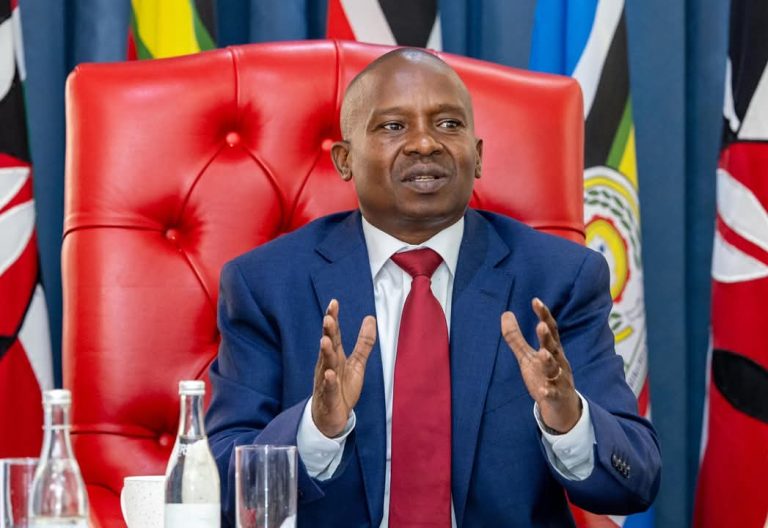‘Tea production has increased from 445M kilos in 2022 to 600M kilos in 2024’ – DP Kindiki
By Francis Muli, January 8, 2025Deputy President Kithure Kindiki says tea production in Kenya increased from 445 million kilos in 2022 to 558 million kilos in 2023 and 600 million kilos in 2024.
Kindiki made the revelation on Wednesday, January 8, 2024, after meeting government officials and leadership of concerned agencies on tea reforms and proposed approaches to opening new export markets for Kenyan tea.
“The government is supporting tea production through providing subsidised fertiliser, establishment of common user facilities for value addition and exploring new markets. These measures and favourable weather and a stronger currency- the shilling has seen tea production increase from 445 million kilos in 2022 to 558 million kilos in 2023 and to 600 million kilos in 2024,” Kindiki stated.
The second in command also revealed that export earnings rose from Ksh138 billion in 2022 to Ksh181 billion in 2023 and to Ksh211 billion in 2024.
“Export earnings rose from 138 billion shillings in 2022 to 181 billion shillings in 2023 and to 211 billion shillings in 2024. Held a briefing meeting on tea reforms and input on proposed approaches to opening new export markets for Kenyan tea. Relevant Government officials and leadership of concerned agencies and other stakeholders were present,” he added.
Tea reforms
In 2024, the Tea Board of Kenya (TBK) highlighted the government’s measures to enhance the country’s tea industry.
Speaking at Karatina University during the centenary celebrations, TBK CEO Willy Mutai announced that the government has invested heavily in the sector to ensure farmers benefit from their input.
“The first thing that the government has put in place is ensuring that farmers get the right price for their tea. This year, the government has invested Ksh2 billion for fertiliser. The government has also set aside Ksh1 billion to build a factory for value addition, which will be set up in Kericho. There are also other plans to expand tea facilities in Mombasa to make sure we have common-user facility,” Mutai stated.
Mutai also revealed that the board, in agreement with the government, has made it easy for investors in the tea sector to get licensed, especially those investing in tea processing.
“An investor can get licenced within 30 days. We also give training to anyone starting a tea factory. Now we have 142 tea factories in the country, with the government having 34 factories processing what we call the orthodox tea,” Mutai added.
More Articles

